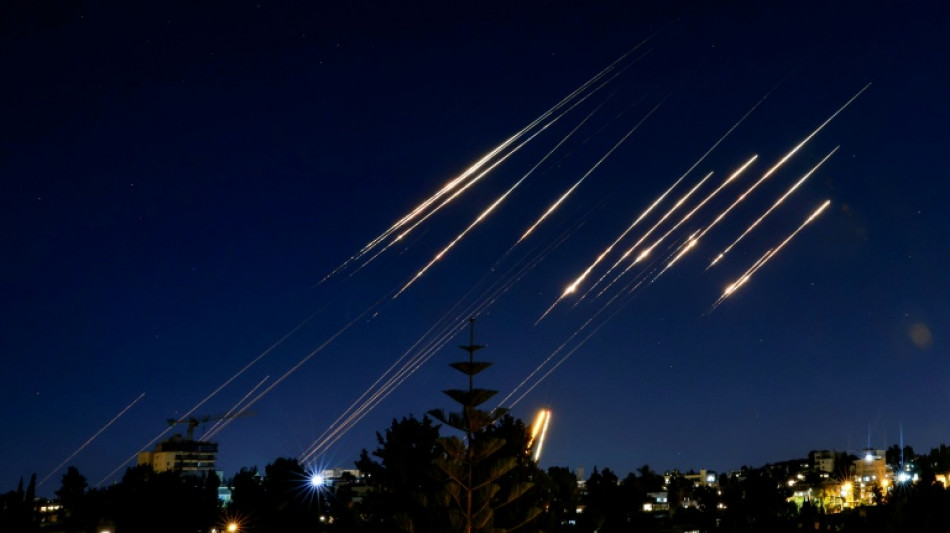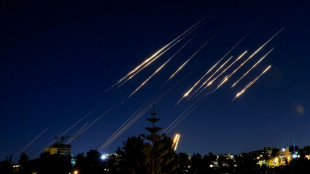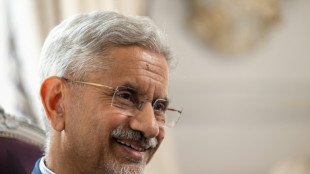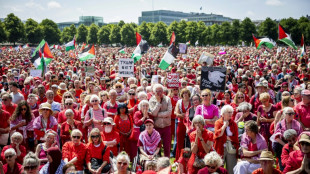

Iran missiles kill 10 in Israel in night of mutual attacks
Iranian missile fire on Israel killed at least 10 people overnight, authorities said Sunday, as the foes exchanged new waves of attacks in their most intense confrontation in history.
In Iran, a heavy cloud of smoke billowed over the capital after Israeli aircraft struck two fuel depots. For days, Iranians have formed long queues at gas stations fearing shortages.
US President Donald Trump said on Sunday that Washington "had nothing to do" with ally Israel's intense bombardment campaign that was launched early Friday, targeting key military and nuclear sites in Iran.
But Trump threatened to launch "the full strength and might" if Iran attacks US interests, saying on his Truth Social platform that "we can easily get a deal done between Iran and Israel, and end this bloody conflict!!!"
Israeli police said six people were killed and at least 180 injured at the site of an overnight missile strike in Bat Yam, near Tel Aviv on Israel's Mediterranean coast.
First responders wearing helmets and headlamps combed through the bombed-out building as dawn broke, with police saying at least seven people were missing, feared buried under the rubble.
"There was an explosion and I thought the whole house had collapsed," said Bat Yam resident Shahar Ben Zion.
"It was a miracle we survived."
In the north of Israel, rescuers and medics said a strike late Saturday destroyed a three-storey building in the town of Tamra, killing four women and taking the overall death toll in the country since Friday to 13.
Iran's UN ambassador said 78 people were killed and 320 wounded in Friday's first wave of Israeli strikes.
Iranian authorities have not provided an updated toll as of early Sunday, but Tehran says Israel has killed top army commanders and nuclear scientists.
- 'Red line' -
After decades of enmity and conflict by proxy, it is the first time the arch-enemies have traded fire with such intensity, triggering fears of a prolonged conflict that could engulf the entire Middle East.
In Iran's capital early Sunday, AFP journalists heard a series of blasts.
The Israeli military also said it had struck nuclear sites including the secretive Organization of Defensive Innovation and Research (SPND), fuel tankers and other targets.
The Iranian oil ministry said Israel struck two fuel depots in the Tehran area.
An AFP journalist saw a depot at Shahran, northwest of the capital, on fire.
Israeli Prime Minister Benjamin Netanyahu has vowed to hit "every target of the ayatollah regime", while Iranian President Masoud Pezeshkian warned further strikes would draw "a more severe and powerful response".
Israeli strikes have hit Iran's Natanz uranium enrichment plant and killed its highest-ranking military officer, Mohammad Bagheri, as well as the head of the powerful Islamic Revolutionary Guard Corps, Hossein Salami.
On Sunday, the Israeli military warned Iranians to evacuate areas near weapons facilities nationwide.
"The Zionist regime crossed a new red line in international law" by "attacking nuclear facilities", Iranian Foreign Minister Abbas Araghchi told foreign diplomats, according to state TV.
He also said Tehran had "solid proof" US forces supported the Israeli attacks.
"We are defending ourselves; our defence is entirely legitimate... If the aggression stops, naturally our responses will also stop."
- UK 'support' -
The attacks persisted despite global calls for de-escalation, with Iran scrapping its latest nuclear talks with the United States, saying it could not negotiate while under fire from Israel.
Iran's Revolutionary Guards said Sunday they had struck sites used by Israeli warplanes for refuelling, in retaliation for the earlier Israeli strikes.
The Guards in a statement vowed to respond "more fiercely and more broadly" if Israel keeps up its deadly campaign.
Yemen's Iran-backed Huthi rebels said they had launched several missiles at Israel in attacks that were "coordinated with the operations carried out by the Iranian military".
The Israeli military said it had intercepted seven drones launched at the country within an hour on Sunday.
Highlighting the global unease, Turkish President Recep Tayyip Erdogan warned against a "devastating war" with regional consequences, in a call with Saudi Crown Prince Mohammed bin Salman, Ankara said.
UK Prime Minister Keir Starmer said Saturday that his country was deploying fighter jets and other "assets" to the Middle East "for contingency support", while he also urged de-escalation.
burs-ami/ser
P.MacNair--NG



